Last month, I wrote about “Concord,” a AAA (((disaster))) eight years in the making that died three weeks after launch. To be fair, I’ve heard a few different estimations for the budget for that game. The early numbers ranged from $100-200 million, although recent “reports” place the budget as high as $400 million. I very much doubt the latter figure, which is entirely unconfirmed. Even still, the lowest estimations are more than high enough to satisfy my schadenfreude. It’s always nice to see your enemies fail, politically and financially.

The article got a fair amount of attention, including the above comment from “Anonymous.” While I don’t think that video games are particularly important, the same is true for all consumer products, and I have quite a bit to say about videogames as an entertainment medium.
Also, I’m still working on Escape From Epstein’s Island in my free time. Since there is no artist, the visual progress is minimal, but I have steadily added features into the game. Fleshing out the menu, adding an arcade and campaign mode, adding plenty of new enemies, fixing the minimap, and doing all the hundreds of little things that go into game development. Programming takes time, so if I wrote an article on this every day, or even every week, there wouldn’t be that much to talk about, but I think that I’ll make it a habit to write a short article showing the progress every second Monday, starting this Monday.
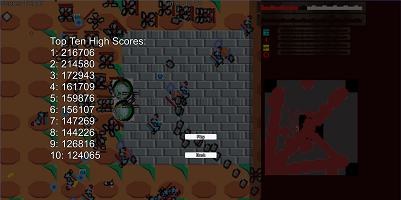
From the arcade menu screen.
You could argue that video games collectively are no better than a different form of narcotic. I’ve had more than my fair share of early morning gaming sessions, none of them productive. As a matter of fact, it’s hard for me to think of any productive moments gaming, except maybe playing splitscreen Halo with my sister as a kid.
I’m sympathetic to people who view gaming the same way that they view gambling, as an inherently negative pastime with no redeemable qualities. Even chess, a classic, well respected and intellectual game without microtransactions or purple haired jewlattos, is a timesink. You can play chess online for free, and I have taken advantage of that fact to waste hundreds, if not thousands of hours on a meaningless board game.
Currently, video games are largely a waste of time. They’re not overly political, except in the wrong direction, or productive in any manner. The publishers are interested only in nickel and diming the players for every last shekel. Creatively, they’ve barely evolved in the past twenty years. About the only progress they’ve made is graphical fidelity, and that’s slowed to a crawl over the past decade.
However, it is difficult to separate the current state of something from its ideal form. Online video content is a worthless cesspool of ads, clickbait, and propaganda, but I’m old enough to remember a time when YouTube was politically useful and fun. I’m not convinced that something like YouTube would be a net negative in a world without President Jonathan Greenblatt, and the same is true for video games. ZOG has such a magical ability to corrupt and ruin everything that even our passenger airliners aren’t safe.

Video games aren’t going anywhere, so they might as well be the best they can be. Besides, they’re at least as politically relevant as the latest extremely important electoral puppet fight between Israel’s Bitch, and Israel’s Other Bitch. If people want me to talk about video games, I’m happy to oblige. I’ve done it before.
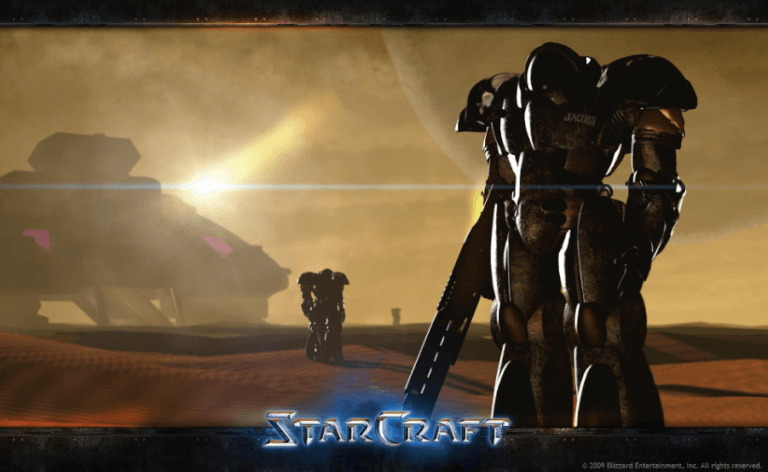
There are plenty of good reasons why, after decades of exposure, gaming is still considered a nerdy side hobby, and gamers are still considered dorks, despite the relative popularity of gaming. Gaming is a self-selected and fairly niche pastime. The annoying aspects of games attract the people willing to tolerate them, while the rest of the world simply moves on.
This can be seen even within gaming, which is why you’ll get Real Time Strategy (RTS) Enjoyers defending the absymal controls/UI as something good in and of itself, because it “elevates the skill ceiling.” Meanwhile the gaming community, along with the rest of the world, stop playing RTS games because what kind of nutcase wants to suffer through the enraging experience of fighting the controls to execute basic strategies?
Gamers who want strategy play real strategy games, like the aforementioned chess. Those who want action, play an FPS or fighting game. For base building they play something like Factorio, or Sim City. As a result, the pool of adults getting carpal tunnel losing to Korean six year olds diminishes. To the ever dwindling community that remains, this only reinforces the idea that RTS games should have bad user interfaces, as the people who would have pushed back against that lunacy simply moved on with their lives.
Recently, the RTS fans were given the false hope of a new renaissance. Two relatively high budget games were announced, Battle Aces, and Stormgate. Battle Aces, talked about above, is a somewhat interesting take on the RTS genre. Worker production is automated, and the game is 95% about controlling your army in the field versus their army in the field. It’s not the game for me, but there’s something to that idea.
Unfortunately, Stormgate was the bigger of the two games and the more traditional RTS. To say that it has failed would be an understatement. I didn’t cherrypick any of these reviews that you see below. I simply searched “Stormgate” on YouTube, and these were the top results.

Undoubtedly Stormgate failed in part because it lacks quality in the same way as many other games. The graphical style is generic and weak. The performance is unacceptable. The microtransactions appear to be borderline predatory, and the lack of content is disturbing. There are some issues with controls, and the sound design is both poorly functioning and uninspired. The lore of the game is also insipid. Most players think there are serious issues with balance, or just general gameplay weirdness.

Nothing can save a game from poor general quality. However, I think the main issue with this game is that it tried to be Starcraft 2. The developers asked a bunch of RTS enthusiasts (weirdos) what they wanted in a new RTS game. Shockingly, they were told that they should put in all the weird and annoying idiosyncracies that have resulted in the genre dying.
The developers could have stuck the landing better, but is it truly surprising that they couldn’t make a better version of Starcraft 2? That game was made by Activision-Blizzard, a corporation with a net worth of almost $75 billion, at the height of their prowess. I’m not saying that big corporations can’t be shockingly incompetent, but it’s simply a fact that Starcraft 2, for all its flaws, is technically well made. If you want to be better, you have to be different, and I have a few ideas that would have helped.
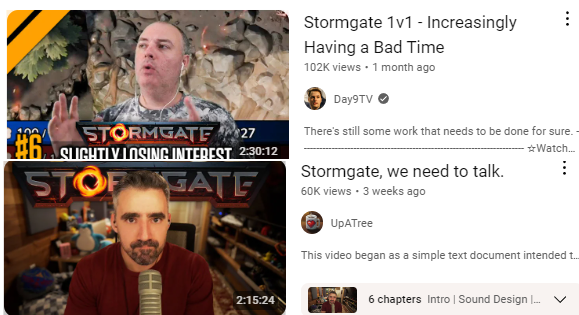
Under my article talking about the failure of the Abrams in Ukraine, user “Zabbadoo” recommended a YouTube channel called “Operational Art of War.” The author claims to be a Senior Officer in the Canadian Reserves. His analysis is quite interesting, and I especially like his map of the Russia-Ukraine conflict area, pictured below. He highlights major terrain features such as mountains, heavy forests, and bodies of water, along with roads, cities, and railways, and explains the logistical reasons why the vast majority of the military effort takes place where it does.
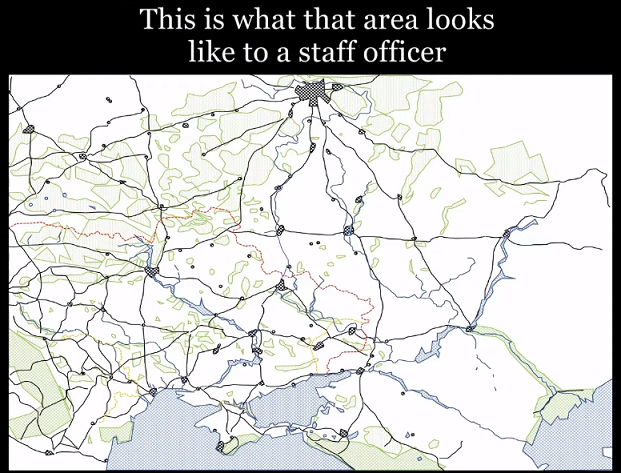
I’ve written quite a bit on military matters. Partly because of domestic political issues, which is why I covered Baroongate, and the US Military ragequitting their hypersonic missile program. Partly because military reality dictates geopolitics. The Iron Yarmaluke failing as hard today as it did two years ago is politically relevant. If Israel could intercept ballistic missiles, they’d be in a much better position.
However, military strategy is interesting in and of itself. How do we set up our manufacturing? How do we protect, or distribute our refineries to keep them from being destroyed by long range missiles? How do we get supply our infantry in the field? What is the makeup of our armed forces? How many riflemen? How much artillery? What ratio of gun artillery to rocket artillery? When do we disperse our infantry, vehicles, and supply depots, and when can we concentrate them for maximal effect? What kinds of vehicles do we produce, and in what amounts? How do we get our division over this river? Are we effectively training our personnel? What should our road and railway infrastructure look like? What’s our naval strategy?
Multiple books could be written on the Houthi’s successful naval blockade of Israel’s Red Sea port, covering all aspects of such an operation. The same could be said for one small raid by special forces, or Napoleon’s entire career. It does not matter how far we zoom out or in, every aspect of the military can be subject to the same extreme scrutiny. That’s why there are people who make careers talking about strategy at the squad level, and some who do the same at the nation state level.
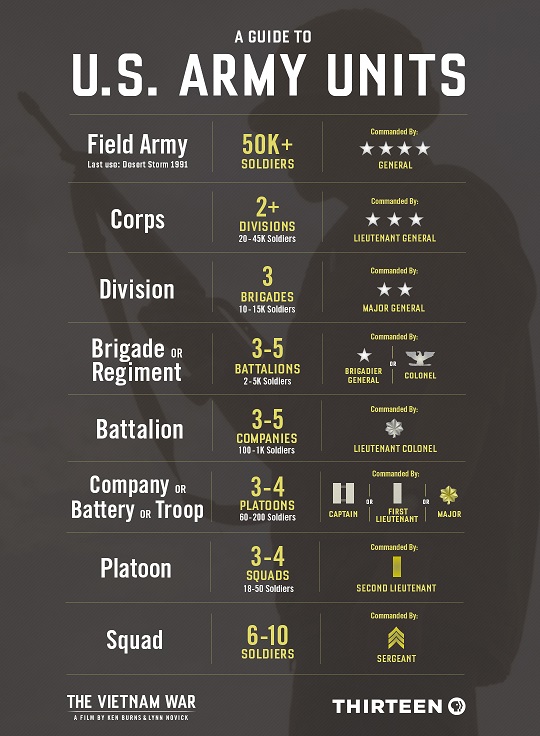
I want a game that lets me plan out a sneaky airborne insertion, supported with a massed cruise missile attack to soak up their anti-air assets and fighter sweeps. I want to be able to plan a deep ambush/siege of their supply lines along a side road to deliberately weaken them in an area to support a massed breakthrough with aircraft and tanks later. I want to have to deal with this attack partially failing, and partially succeeding at every step of the process. I want the tactical and logistical challenge of saving troops caught behind enemy lines with little supplies, whilst exploiting the successes they did have. Most importantly, I want this to be about 5% of the major happenings in the game at any one time, with my actions here having rippling effects for all the other battles.
What I don’t want is to click four hundred times a minute to execute basic strategies, because my factories don’t just build the things I obviously want them to build, or my marines are too stupid to focus fire. Clicking on the dragoon a lot because it doesn’t pathfind well isn’t interesting, no matter how much it “raises the skill ceiling.” That some small souled mouthbreathing bug creatures on the internet enjoy this is a testament to the fact that, no matter how niche, there is an audience for everything.
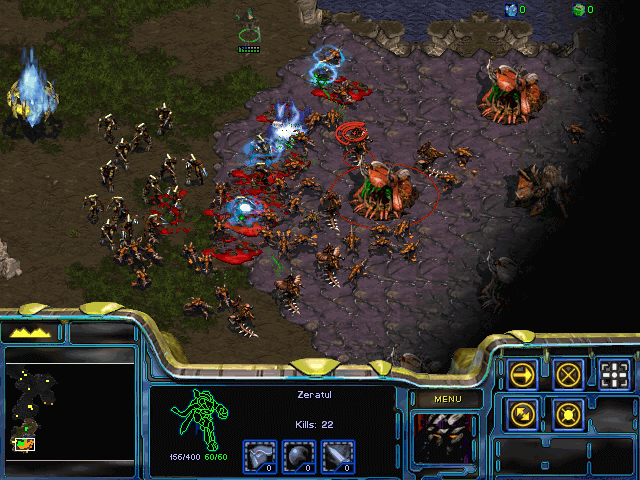
Imagine the sheer amount of clicking to control that…
It’s not difficult to improve upon RTS games, since you can just start incorporating things that real militaries do. Take Starcraft and give the fielded troops limited supplies which need a vehicle/worker/thing to resupply them. Then add a road network. Then add combat engineering. Then take away perfect information. Then make the map larger, to make positioning more important. Add basic terrain features like forests, rivers, and open areas. Go from having one base, to dozens of scattered resource nodes. Etcetera.
Realism is not the point. Although a real military sim might be interesting, I’d be thrilled playing Space Bugs Colonial Wars with all this depth added. Likewise, having one type of infantry, one truck, one tank, one airlifter, and so on makes sense. Simplifying out the tedium of real war is great. Carrying over the bizarre genre abstractions from 1992’s Dune II, not so much.
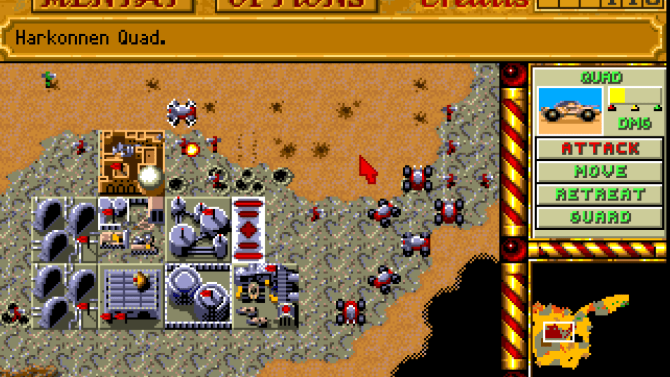
I first heard about Stormgate years ago. I was mildly interested after I heard they were adding features to lessen the tedium and bad UI of the genre. But then I heard them “responding to community feedback,” and ensuring that there would be plenty of tedious things that professional gamers could do to “ensure skill expression,” a term that I have come to loathe with a passion.
3:00
Stormgate Developer: Mechanics we want to push more towards advanced player, rather than the new player.
They chose “mechanics” over a playerbase.

One month after launch.
FYI, “mechanics” is RTS speak for “tedious, mindless clicking with zero strategy.” They went out of their way to have lots of this, because professional RTS gamers whined. The other 99.99% of the world hates that, but they’d all moved on from Real Time Clicking games, and weren’t available for comment.
As an aside, the size of the professional scene is almost perfectly correlated to the size of the casual playerbase. I really despise “e-sports,” but that’s just a fact. If you want your game to be an e-sport, make a game that normal people like. You’ll naturally get people organizing tournaments.
Anyway, there are lots of things that I am apathetic towards. Yet, despite not playing RTS games, I have a passionate distaste for them. RTS games should be the most awesome kind of games. An RTS game is supposed to be like playing Sim City against someone else playing Sim City, when all of a sudden he airdrops special forces onto your municipal buildings and publicly executes your mayor, so you call in retaliatory airstrikes on his electricity generators. Next thing you know your Sims are engaging in mechanized urban warfare, and you’ve got to manage the war effort while also making sure to keep taxes low and have enough parks so you don’t face a revolt when you implement the draft.
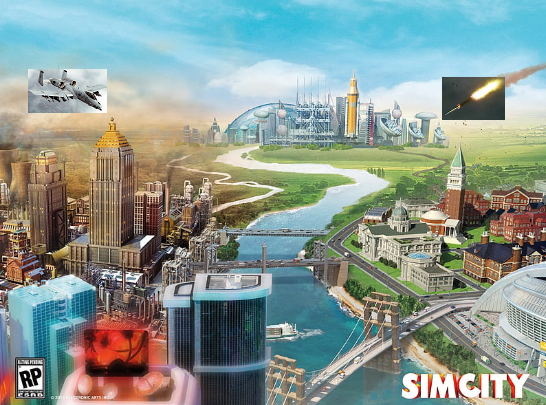
We don’t get to have this because a tiny number of loud, vocal dipshits demand tedium in place of strategy. RTS “pro gamers” are a bunch of degenerate bugcreatures who are proud of their ability to tolerate extreme tedium, when they should be deeply ashamed. Couple them with uncreative developers who listen to these plebs instead of laughing in their faces, and you have the recipe for a dead genre.
RTS games had their heyday twenty years ago, and have since been relegated to the minor leagues, right next to other tedious genres like adventure games. We all stopped tolerating cracked out dream logic puzzles that required endless combinations of trial and error, and we all stopped tolerating low strategy games that compensate by requiring you to get carpal tunnel just to be mid. Game design evolved, improved. We become enlightened. We came to realize that games which deliberately waste the time of the player are bad.
Then some Japanese midwit ruined all that, by loudly proclaiming that difficulty levels and checkpoints are for da casuals, and real hardcore gamers enjoy getting one shot by some random bullshit offscreen enemy that you couldn’t see who did some anime spinning attack that you couldn’t avoid without having first consulted a guide. What was it I said about degenerate bugcreatures who are proud of their ability to tolerate extreme tedium, when they should be deeply ashamed? Apparently they just switched genres.
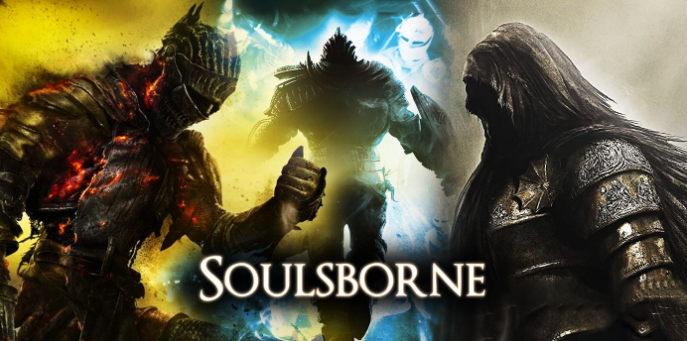
Soulsbornes are shitty action games that overcompensate for their lack of depth by deliberately wasting the player’s time. They reframe this tedium as “difficulty,” and if you point out how obnoxious this is, a legion of (P)reddit-tier NPCs will descend upon you with their regurgitated slogans of tolerate tedium “git gud” or just use a guide like I did “you just want your hand held, casual.”
I’ll talk about this more in the next installment.

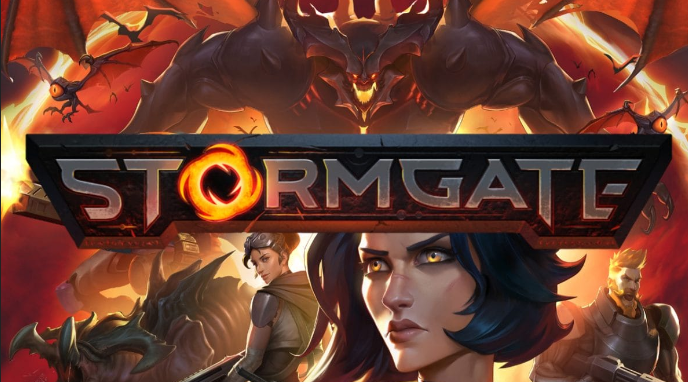
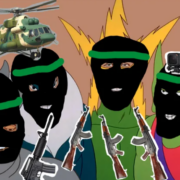
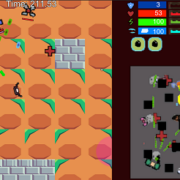
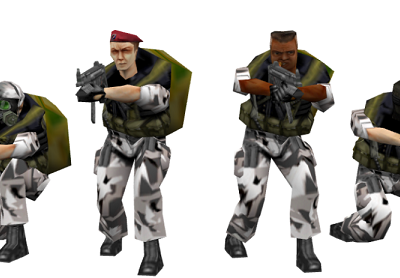


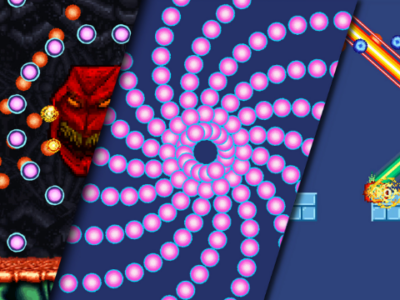
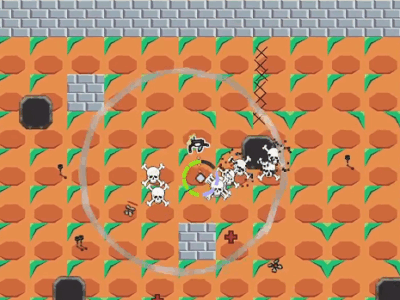


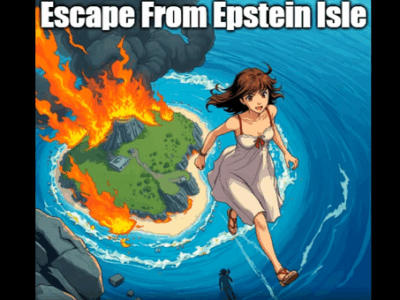
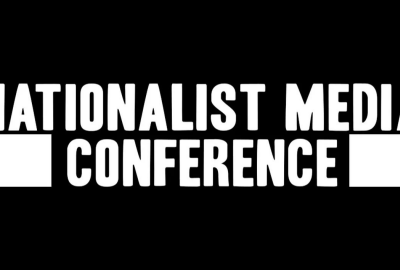



Guilting yourself or others about videogames being a waste of time is for people who don’t have real jobs or anything going on in their lives. Videogames are not worse than wasting your time on sportsball, tv in general, or even hanging out in debatably positive settings with the crowds that come with it. I have a small business and a bunch of kids and if Elden Ring or whatever other fucking game is my chill destination of choice at the moment, you can fuck right off. Women’s feelings about it can fuck right off too, it’s not like they have any lessons to give men in being productive. Seriously, why the need for flogging over videogames. It’s a media talking point because the powers that be are mad at white men having access to any form of escapism. Why would you even echo this bullshit?
Got ourselves a badass over here.
Ignore haters. Keep writing about video games.
o7
The only game i like playing truly nowadays aside of my own mini rpg project is rule the waves.
To bad i cant play it against real humans as the AI has some cheesy elements.
Still its a wonderful strategy game were your choices 5 years ago ripple through to a humiliating defeat by a unexpected rival or an absolute steamroll of your desired enemy.
Looks interesting.
Stormgate was a disaster. Not simply for the reasons covered here, but specifically for the awful character design and art. I really enjoyed watching it burn. They attempted to “fix” their main female protagonist by making her look less retarded and more like an Overwatch character, but neither design is good, and the character just sucks and is totally unoriginal. I personally don’t play RTS anymore. If you want to play military strategy games, turn based games like WarPlan: Europe are preferable imo.
It’s half and half. They were never going to be as polished as Starcraft 2, but they could have designed a much better game if they hadn’t listened to the Real Time Clicking Enjoyers.
I’m not a RTC enjoyer, but the fact that Stormgate tried to recreate that sort of game isn’t the reason it failed(1). There is always going to be a niche audience for that sort of game. I’m not part of it, but I do enjoy watching Starcraft 1/2 professional tournaments from time to time. Stormgate failed because it tried to recreate that sort of game but failed on every mechanical aspect, from sound design to unit and map design.
1) of course, the fact that the RTC audience is much smaller than the FPS audience (or even the “real strategy game” audience, although RTC Starcraft games do still count as strategy games in a general sense) means that since Stormgate failed to deliver, there’s literally no one who will play it. Last time I checked it had sub-100 Steam players.